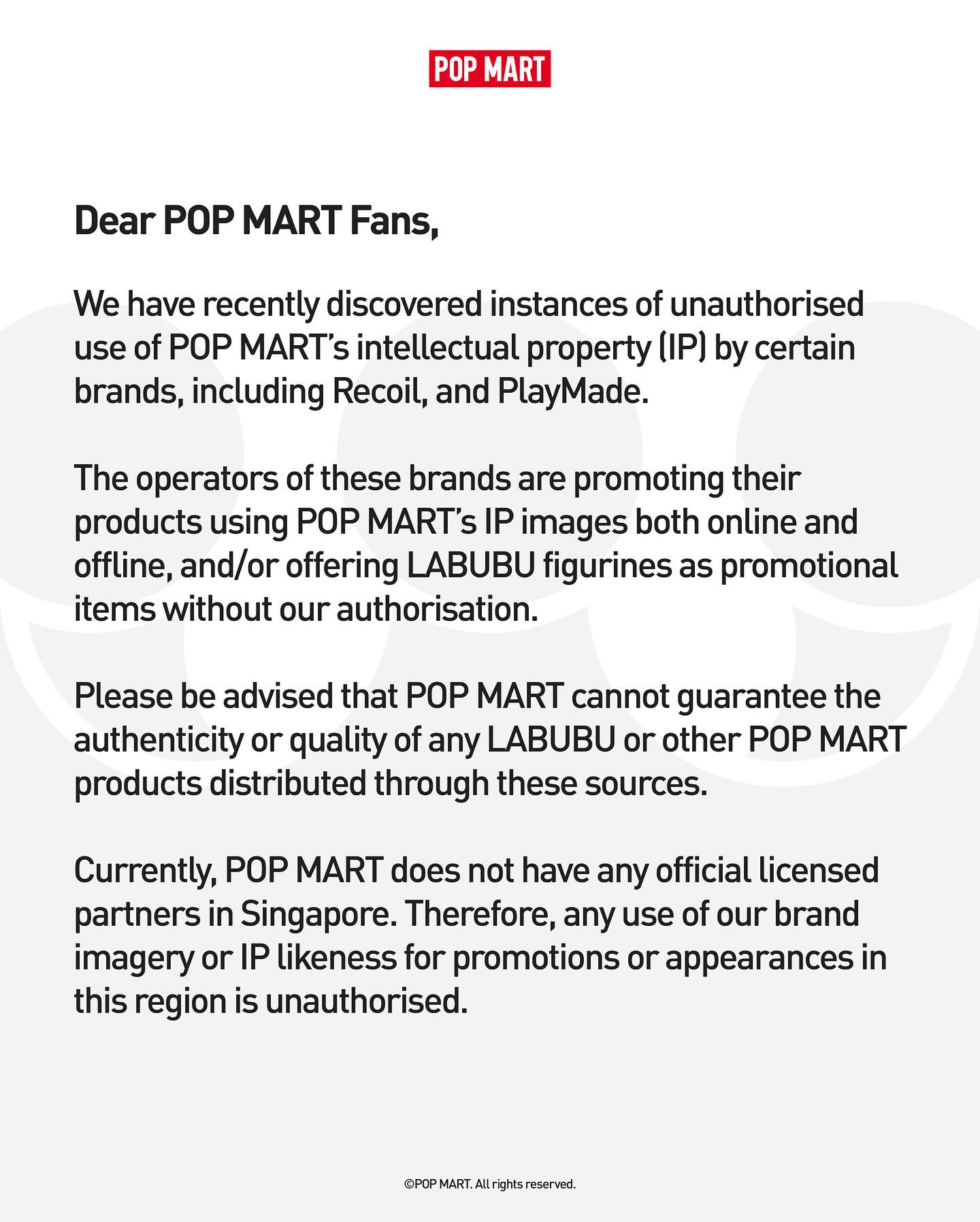"Report Any Unauthorised Use" — Pop Mart To Take Action Against Those Profiting Off Labubu
Many food businesses have jumped on the Labubu wagon.
The recent rise of Labubu has inspired a wave of food-themed products by restaurants, local food businesses, and vendors.
However, Pop Mart has announced they will be taking legal action against unauthorised use of the character's likeness.
Pop Mart, the Chinese company managing the intellectual property rights for the popular monster character, released a statement on Facebook on 22 November.
The company clarified that it has no official licensed partners in Singapore and is aware of food retailers selling products made in the likeness of Labubu.
"Any use of our brand imagery or IP likeness for promotions or appearances in this region is unauthorised," read a part of the statement.
The company also encouraged fans to report any unauthorised use of their brand to their official customer service channels.
In response to Pop Mart's announcement, several businesses in Singapore have proactively stopped selling Labubu-themed treats, with some offering refunds to customers who have already placed orders.
Labubu, a creation of Hong Kong artist Kasing Lung, is part of "The Monsters" story series. The character experienced a surge in popularity this year after BLACKPINK member Lisa featured Labubu toys in her social media posts.
The company clarified that legal action is crucial to protect both the artist's and Pop Mart's interests
"If we do not take action, we are hurting our future brand partners," Pop Mart International's head of strategic partnership Kevin Zhang told The Straits Times.
Unauthorised use undermines potential licensing agreements with companies who are willing to pay for official collaborations.
Legal experts warn that warn that unauthorised use of Labubu in food products poses risks to both consumers and the brand. By using Labubu's image on food product, consumers might assume they are associated with the original character.
"If someone gets sick from a food product that carries the unauthorised branding, the person may blame the original IP owner. It can hurt the reputation of the brand and the IP owner," Singaporean law firm Yuen Law explained.
